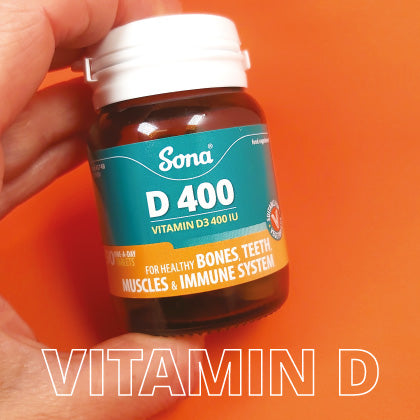Health News & Info
Vitamin C and Children
Vitamin C is a water-soluble vitamin, meaning that it is dissolved in water and is readily absorbed into tissues for immediate use. Vitamin C plays numerous roles within a child’s body, such as increasing antioxidant levels, enhancing iron absorption, supporting immune function, as well as helping to prevent and treat acute respiratory infections. Since vitamin C is not stored in the body, it must be consumed regularly from the diet, or through supplementation. In this article you can find: What is vitamin C? Benefits of vitamin C for children Signs of vitamin C deficiency in children What is vitamin C? Vitamin...
5 Benefits of Vitamin D
Vitamin D, also known as calciferol, is a fat-soluble vitamin (meaning that it is absorbed along with dietary fat and can be stored in the body’s fatty tissue) that is naturally present in few foods, such as the flesh of fatty fish, beef, liver, cheese, egg yolks, and mushrooms that have been grown under UV light. Our primary source of vitamin D comes from the sun (we obtain about 80-90% of it this way). However, vitamin D is seasonal and cannot be made in the winter, while the amount made in the summer is subject to sunshine, weather, and other...
Beta Carotene: Uses, Benefits & Side Effects
Beta carotene is referred to as a provitamin A carotenoid, meaning that the body can convert it into vitamin A. Beta carotene serves as an antioxidant, and can also be helpful in protecting the skin against UV radiation from sunlight by contributing to the process of repairing the damage cause by exposure. In this article you can find: What is beta carotene? What are the benefits of beta carotene? Are there any potential risks to supplementing with beta carotene? What is beta carotene? Beta carotene is a red-orange plant pigment found in a variety of fruits and vegetables including carrots,...
Vitamin D in Pregnancy
Vitamin D3 is important for the maintenance of normal bones and teeth, muscle function, and cell division. It is also important for the absorption and utilisation of calcium and phosphorus, the maintenance of normal blood calcium concentration, the normal function of the immune system and inflammatory response. In this article you can find: - What is vitamin D? - Why is vitamin D important in pregnancy? - How much vitamin D should I take during pregnancy? What is vitamin D? Vitamin D refers to a group of fat-soluble vitamins (vitamins that are absorbed along with dietary fat and can be stored...




